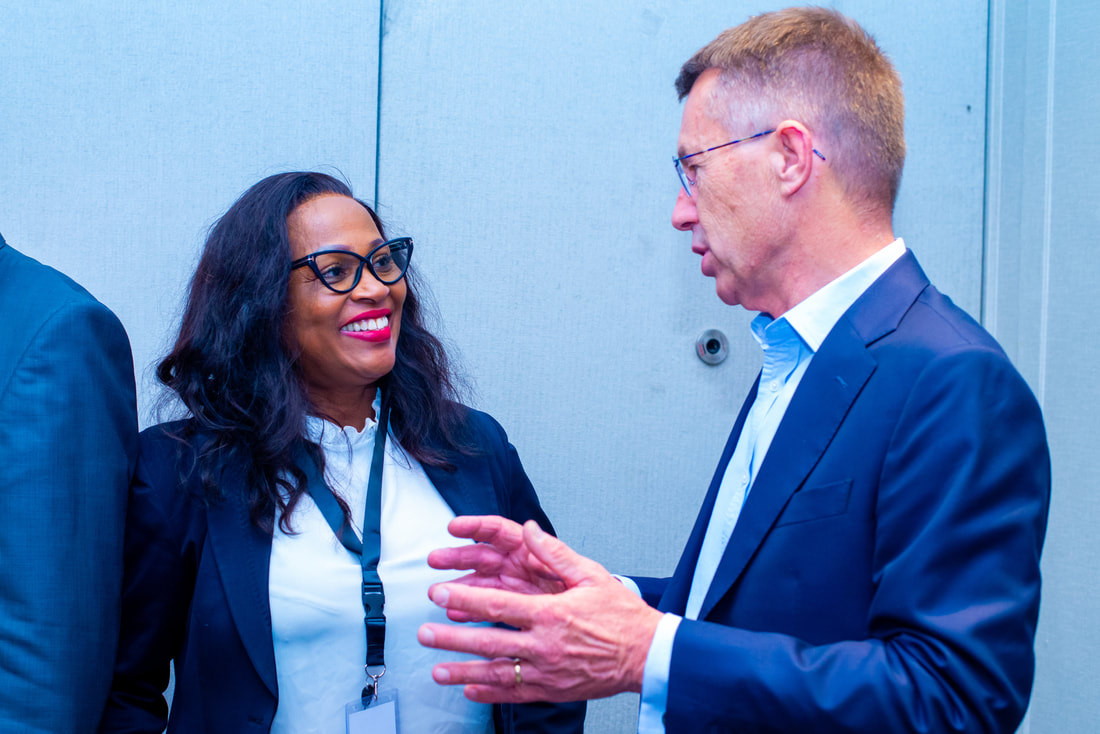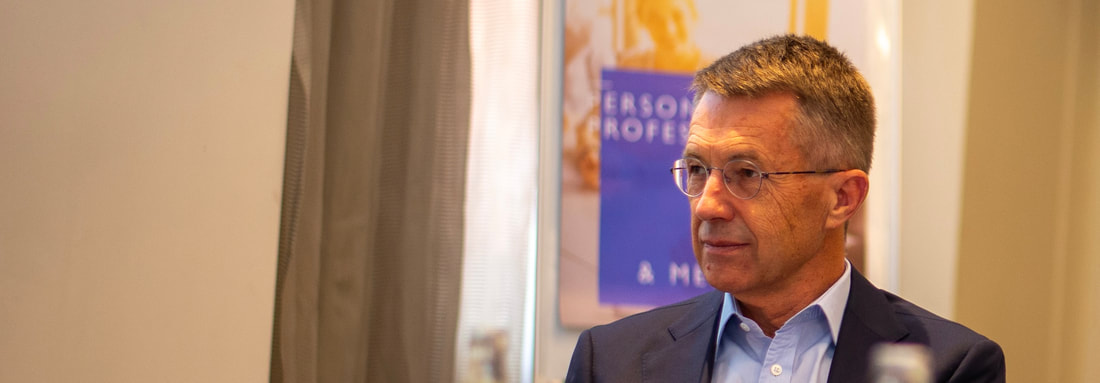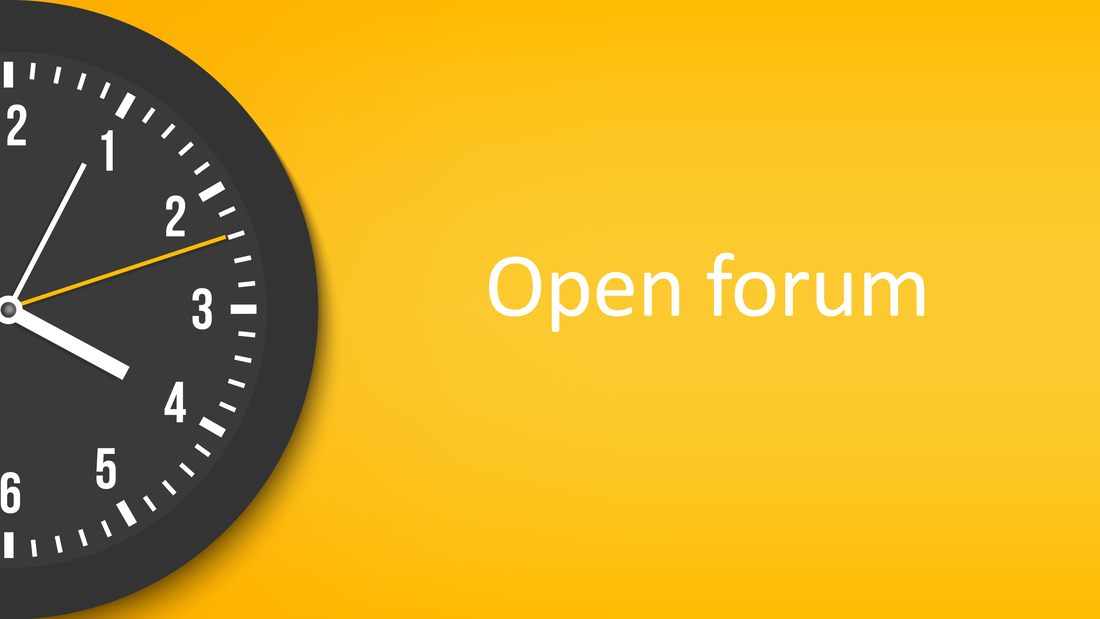|
Recently, I had the great fortune to sit with Mark Banicevich, a business leader, to record a set of three fireside chats for his Governance Bites series. Mark was keen to get my take on several topical aspects of boards and governance. The first of the three conversations is now available to watch. (The second and third conversations in the series will be posted in April and May.) In this conversation, we explored board work in various jurisdictions, noting differences and similarities along the way. While a 20-minute whistle-stop conversation is hardly sufficient to do the task justice, I do hope it encourages you to explore further, and is a catalyst for some conversations. And, may I ask... is the commentary helpful or not? What do you agree or disagree with? I'd be glad to hear your thoughts, either in the comments section below, or directly, if you prefer.
0 Comments
As regular readers know, I read widely; topics I explore span (in addition to core themes of corporate governance and strategy) include philosophy, neuroscience, business, history, military strategy and more besides. I usually take notes, as an aide memoire for later reference. Some articles are memorable, others less so. This one recently-published article piqued my attention because it reminded me of a question I face most weeks: "What do you do?" Most enquirers expect to hear a job title or a profession, to enable them to 'position' me, which is fine if the 'job' is a well-known profession or vocation, such as a doctor, teacher, plumber or lawyer. But what about a director, or an advisor? Is offering a one-word response helpful? Might it enlighten or obfuscate? For those who understand the roles of director and advisor, one-word descriptors are adequate. But for others (the majority, even most?), the response is more likely to an awkward smile, as if to say, "I wonder what one of those is or does? Does he mean a company director, a movie director, an orchestra conductor, or something else?" or, "What is an advisor? It sounds like a fancy name for a consultant." What an unhelpful interaction! Clarity and simplicity are vital if we are to communicate effectively. And the effectiveness of what we utter—whether our message got through—is determined by the listener not the speaker. With this in mind, I try to read the person before answering. If they appear knowledgeable of business matters, I tend to say I work with boards, sometimes adding that I help them see around corners and govern with impact; an advisor. But if not, I say I'm a troubleshooter who works with business leaders, or something along those lines. One thing I never say: I'm a consultant—they are people who make decisions and implement things for others. I don't. Rather, I ask questions to gain insight and make suggestions. Whether the client takes up the advice or not is their decision. So, returning to the headline question. The words we utter: do they matter? Yes, they surely do, if we are to communicate well.
The end of 2023 is nigh; consequently, minds have turned to end-of-year celebrations, various secular and religious festivals, and, inevitably, reflections. Twenty twenty-three has been a standout year for me for several reasons, not the least of which have been many expressions of encouragement, support and endorsement as I have sought to help boards govern with impact. That I have had the opportunity to contribute is a delight. But more than this, the seemingly simple fact that directors, boards, shareholders, institutions and others invite me to advise, assess, educate, speak and otherwise provide counsel, is a great honour. Thank you to everyone who has sought me during the year and entrusted your situations to me. These are cherished interactions. As I sit back, in these final hours of the 'business' year, I have found myself pondering 'reach'. This, a response to a question from a friend who, knowing of my recent trip to Kenya, wanted to know how many countries I had visited in 2023. When I checked back, this is what I discovered:
Superficially, this sounds like a busy year. And it has been. But, I hasten to add these data are neither targets nor badges of honour. They are, simply, footprints: evidence of my travels as I have sought to help boards govern with impact over the past year. Looking to 2024, my intent is to continue to serve—subject to boards and directors wanting guidance, of course! For now though, my objective is more selfish: it is relax, read and recharge, in readiness for what lies ahead. Best wishes as you close out 2023, and turn the page to reveal 2024.
The prospect of looking back on the year past at this juncture seems a little odd, even presumptuous, given five weeks remain in 2023. And yet, with the onset of the holiday season (Christmas, Hanukkah, Diwali, as relevant in your cultural setting), I have noticed minds are starting to turn; casual comments in my hearing indicate some people are starting to reflect on the year soon-to-be-gone; others upon what the future might hold. As someone called on to think broadly about organisational challenges and opportunities, and to share insights that might be helpful to helping boards govern with impact or realise organisational potential, I too, take time to ponder. To think about what has passed, what lies ahead, and how one can help is not only smart, it is vital—if one is to learn, make adjustments to stay on track and achieve goals and, over time, become a better person. Turn now to the person you see in the mirror. What did you set out to achieve in 2023? Did you set specific goals? If so, have you checked progress? Are you still on track? Have you taken into account changes in the environment around you and made adjustments, or have you pressed on in spite of changing circumstances? As a leader, you owe it to yourself—and all those you interact with—to check progress periodically and make adjustments if you have veered off track or lost sight of the goal. For the record, my goal for 2023 was audacious; to ensure every director and board I had the privilege of serving, globally, derived some benefit from the interaction. The goal was audacious because 'every' set a high bar; essentially, it left no room for slippage! Thankfully, feedback to date suggests I'm doing OK. Hopefully, the feedback still to come is consistent with that received through the year. If it is, I'll wrap up the year contented; tired but contented.
Twice this week, I have been asked about my reading and thinking habits. One enquirer wanted to know much time I spend reading and pondering insights garnered from various authors; the other whether I schedule [slow] thinking time. Although neither asked explicitly, both enquirers seemed to assume that quiet time and the notion of reading widely are important to me. And, indeed they are. But, why? The practice of reading serves, I think, two inherent objectives: to maintain currency with trends and developments, and to become a better person. The objective is not to become a technical expert capable of regurgitating data and ideas (ChatGPT can do that), but a more holistic thinker—one who discerns problems and opportunities, considers them from different perspectives, asks appropriate questions and draws relevant conclusions. More succinctly, someone who leads a reflective life. May I propose something? To philosophise is to breathe. In my experience, and that of others who I have been fortunate to interact with, the ideas that emerge from the practice of philosophising provide a solid foundation for that which follows. And yet many business leaders and board directors claim to be too busy to take time to ponder (think about) possibilities that might lie below the surface or around the corner. Quite why such a (seemingly) bedrock activity is neglected is a curiosity to me; high quality thinking is an antecedent of effective leadership and governance, n'cest ce-pas? When people I interact with, especially friends and clients, say they see a better me (someone who is on top of his game, is nice to be around and who offers relevant and considered advice), such observations tend to coincide with a period of reading literature (or other so-called 'brainy' books) and thinking deeply about the questions posed by the authors. While comments like this are gratifying, they serve a higher purpose: to remind me to make time, regardless of what else is going on around me. (And, in case you are wondering, my answers to the enquirers were, "About 12–15 hours each week" and, "Yes.")
News has emerged in recent days that the United States House of Representatives is moribund—all for the lack of a Speaker. The Speaker is the person who presides over the House; they are, in effect, the administrative head. But for several weeks now, the House has been without a Speaker—since Kevin McCarthy was removed on 3 October by a motion to vacate. The move, which was unprecedented, has left the House in a precarious position. While several replacements have been considered, none have been appointed. And, without a Speaker, the business of the House cannot proceed. This includes appropriations, to cover expenditure on 'projects' such as the Hamas–Israeli conflict and the Ukraine war. The situation highlights a stark weakness in the system, whereby the US Government system has a single point of failure baked in. Imagine the outcry if a company's decision-making processes stalled, for the lack of a board chair or an unexpected vacancy in the CEO role. Staff, customers, suppliers and shareholders would be upset, and rightly so. The potential for reputational damage would be high as well. Smart companies anticipate such problems by thinking ahead; they appoint deputies and establish succession plans and delegation frameworks to be activated in the event the chair, CEO or key leader is unavailable or unable to serve. And so to the core question: Does your company have appropriate succession and delegations in place, to ensure decision-making continuity when a key leader cannot contribute? If so, that is great. But if not, now might be a good time to put things in order.
And there you have it: before many of us realised, the solar equinox has passed once more—that moment when the sun passes the celestial equator and winter (or, for those in the global south, summer) beckons. The equinox also signals the recommencement of on-the-ground contributions in the Northern Hemisphere. To wit, I shall be in the United Kingdom and Switzerland soon—from 2nd through 13th October, in fact. My programme sees me in London, Leeds, Cambridge, Zurich and St. Gallen, for a variety of contributions:
I am looking forward to hearing the heartbeat of company directors, advisors and others, to understand recent developments and emerging trends, and to discern changes since I visited earlier this year. I have intentionally held space available for a few informal meetings. So, if you want to meet up while I am in your neighbourhood—be it to discuss the work and impact of boards, corporate governance, or some other topic of interest—do get in touch. I would be delighted to hear from you.
Do you have a question about governing with impact, or driving organisational performance?22/8/2023 One of the great joys of being an independent advisor is the opportunity to spend time with people from a wide range of backgrounds; business and social experiences; walks of life; and, in my case, countries and cultures. The depth and breadth of humanity never ceases to amaze me. Paradoxically, a common thread runs amongst the diversity: people intent on improving organisational effectiveness and making a difference spend lots of time asking questions, lots of questions. When a question is asked from the floor after a keynote talk, during an advisory engagement or professional development workshop, or as part of a confidential discussion or informal chat, something mysterious happens: Both parties learn! This should come as no surprise, for no one has all the answers—although some people behave as if they do. Recently, I posed several questions board directors may wish to consider. The response to that musing has been overwhelming, so I thought an open invitation might be in order. If you have a question about any aspect of corporate governance, strategic management, board craft or the challenge of governing with impact—either personally or on behalf of a board you serve on—please ask and I will gladly respond. Use the comment link here or, if you prefer, send an email. Let's learn together!
Board are funny things. They are comprised of selected individuals (directors, board members) charged with meeting together to consider various matters for the purpose of making decisions. While it is true to say directors meet, decisions are made by the collective whole—the board—not individual directors. Therefore, every decision is unanimous. Complicating matters, boards only 'exist' when directors meet, and board work is, largely, endogenous; so, they need to be coordinated—someone needs to 'drive' the board. The term 'chairman' (also, 'board chair, 'chair' or sometimes, 'chairperson') is the term used to identify the board member who carries such responsibilities—these being to convene the board’s meetings, ensure duties are discharged, and that steerage and guidance (that is, governance) is effective. But, as all directors are equal in law, the chair's role is exercised through influence, not command in any controlling sense. Given this, how should a board chair, well, chair the board? While there is no one 'best' way of chairing, the following characteristics are conducive to better outcomes:
Governance is tough because, inter alia, things change, sometimes unexpectedly; boards often need to make decisions without all the information they want; linkages between decisions and outcomes are contingent; and, directors' duties are unbounded. If boards are to govern with impact, chairs need to be alert: to ensure directors are actively engaged, and that they identify and consider relevant information, think critically and, together, make smart decisions in the best interests of the company. The chairs' priority is to convene the board and its work, and keep directors on track and the organisation safe. For this, a deft hand is needed.
I have just arrived back in New Zealand, from ten days in the UK and Europe. My meetings with directors, advisors, academics, students and directors’ institutions had two primary objectives: to listen and to share. The listening aspect was to gain firsthand knowledge of issues and opportunities; the sharing aspect to provide updates on the craft of board work and my experiences as a practicing director. Learnings (a few immediate observations, in no particular order):
Amongst it all, there were some gems:
Several followup visits are now being planned, to advise, assess, educate and speak on topical board and organisational performance matters. If you want to discuss a matter of interest, or check my availability to assist, contact me for a confidential, obligation-free discussion. The headline picture, showing a derelict property in Soho, London, is analogous to the state of governance in many places in Europe: structurally sound but outwardly messy.
|
SearchMusingsThoughts on corporate governance, strategy and boardcraft; our place in the world; and other topics that catch my attention. Categories
All
Archives
May 2024
|
|
Dr. Peter Crow, CMInstD
|
© Copyright 2001-2024 | Terms of use & privacy
|










